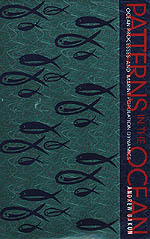A look at the factors that might influence fisheries populations from
the non-typical (for fisheries managers) perspective of an oceanographer.
While Dr. Bakun's book delves into too much physical oceanography for the
general reader, anyone with an interest in fisheries populations should
have no problem getting through it and in the process being exposed to
another viewpoint.
Entry from the University of Rhode Island Sea
Grant Depository catalogue [ ] ]
The author, a physical oceanographer who has worked for many years on
fisheries problems, believes that the communications gap that separates
the oceanographic and fisheries scientific communities goes far beyond
differences in terminology and jargon to involve completely different conceptual
frameworks. The issue is not merely academic. There is a growing realization
within fisheries science that current theory and practice are not sufficient
for effective management. He examines the 'grand global ocean-atmosphere
rhythms' that operate in the ocean world, and the complex and often contorted
life-cycle responses exhibited by marine organisms. In the process, he
constructs a cross-disciplinary conceptual framework by which information
that may formerly have appeared inexplicable and chaotic may be rich with
meaningful insights.
NSGD#: CUIMR-B-96-001 |




